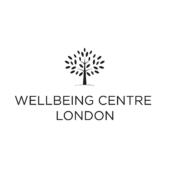Hypnotherapy therapists in Egremont, England ENG, United Kingdom GB
We are proud to feature top rated Hypnotherapy therapists in Egremont, England, United Kingdom. We encourage you to review each profile to find your best match.
Tamzin Brain@HypnoChange4U
Therapist, Ad.Dip.CP, DipHyp CS, Dip CP, MNCS (Acc), MHS, Counselling Cert, CACHE3, B.A. Honours Degree PsyCrim
Hypnotherapy provides a means of working with particular problems and issues through the use of hypnosis. It is solution-focused and provides a quick and effective alternative to the more traditional psychotherapy. Hypnosis is a very safe and natural state of relaxation, where the mind is very calm and focused, similar to daydreaming. Whilst in this comfortable state of deep relaxation, positive suggestions are made, always for the benefit of the client, to help them make the positive changes they desire.
13 Years Experience
Online in Egremont, England (Online Only)
Wellbeing Centre London
Registered Psychotherapist, Psychotherapy, Counselling, Psychology, CBT, EMDR and Therapy, Coaching
We provide effective Hypnotherapy for all emotional issues, including Hypnotherapy for Fertility.
14 Years Experience
Online in Egremont, England
Joel Cantor, Weybridge Hypnotherapy & Mindfulness
Therapist, MCH, BSc(hons), SQHP
Hypnotherapy is the perhaps the most effective way of accessing the Subconscious mind and is therefore an extremely useful part of my practice.
12 Years Experience
Online in Egremont, England
Claire Silvester
Counsellor/Therapist, MSC (Psych), BSc (Psych), Certified Sex Therapy Informed Professional (CSTIP), RP.
Trained in rewind technique for trauma processing. Deep meditation available for areas of concern, regulation and mindfulness.
19 Years Experience
Online in Egremont, England (Online Only)
Sara Aicart-Pendlebury
Art Therapist, Human Givens Practitioner (HG.Dip.P), Member of Human Givens Institute, IFS therapist Levels 1&2, Narm Practitioner
All forms of mental distress arise because, in one way or another, people’s physical or emotional needs are not being met. Our essential needs and our innate resources to help meet them – the ‘givens’ of human nature – are at the heart of the human givens approach. If all our needs are met in balance, making us confident about our place in the world and the people we connect with, we don’t suffer from disabling conditions, such as anxiety and stress, depression, addictions, phobias or panic attacks.
We all know that we have physical needs – for food, water, warmth and shelter – which must be sufficiently met to enable us to survive and thrive. But people often don’t realise that certain emotional needs are just as crucial for both our mental and physical health. Decades of health and social research have revealed, for instance, that a sense of security, intimacy, social connection, status, autonomy and control, competence and achievement, and meaning and purpose are also vital, if we are to stay in good health and feel fulfilled in our lives. Our innate resources for helping us meet these needs include the ability to build rapport, empathise and connect with others; to learn, problem solve, remember and plan; to use our imaginations productively; and to step back and take an objective look at our circumstances. When any of our important needs is seriously unmet over a significant period or any of our resources is not made best use of, mental and physical ill health may develop.
This is why, when human givens practitioners work with people in mental distress, they look for what is missing in those people’s lives and seek ways to redress that, as well as teaching them important life-coping skills.
15 Years Experience
Online in Egremont, England




